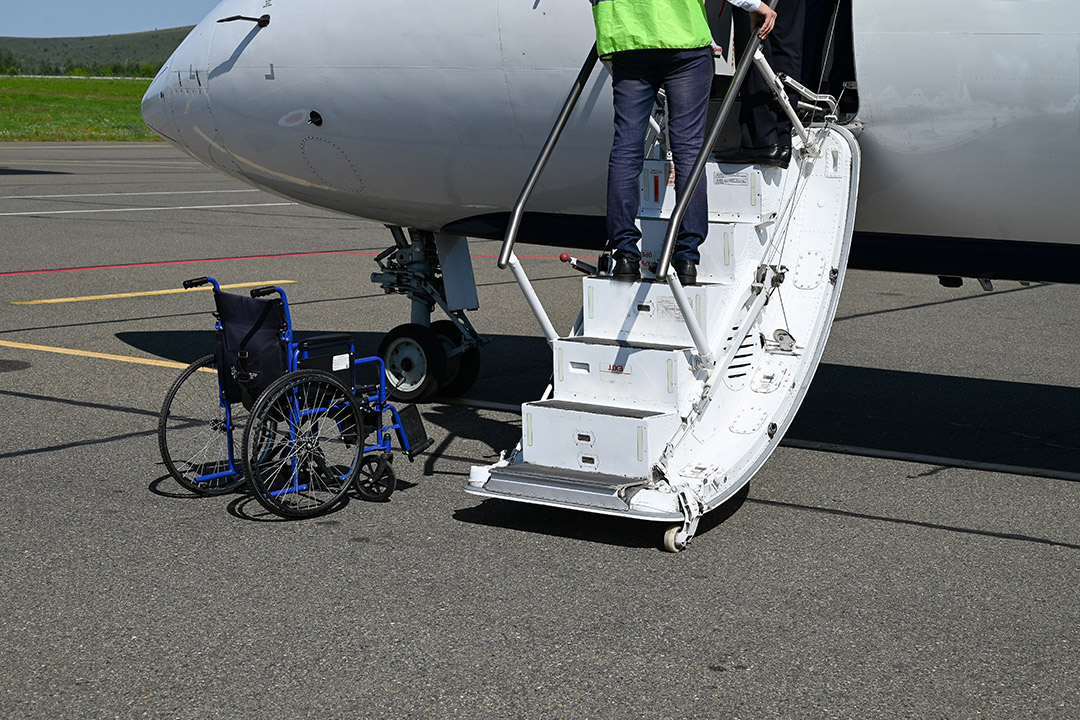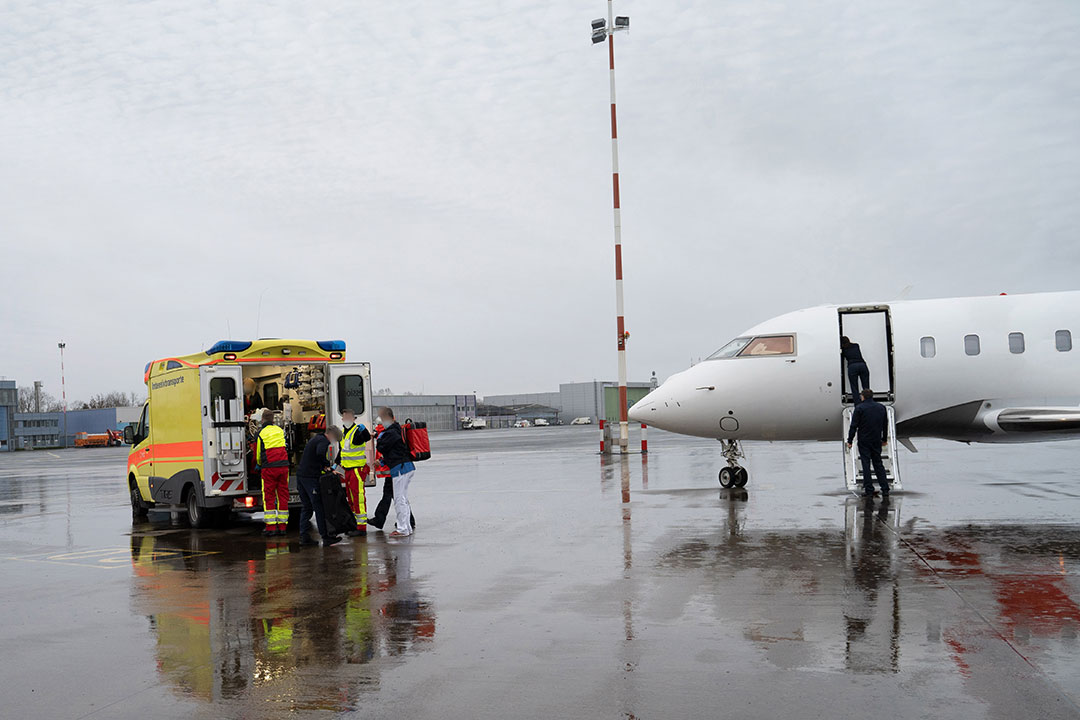You are staring at your boarding pass, heart racing. The family reunion. That business trip. The vacation you have postponed twice already. But there is that nagging voice: What if my liver cannot handle flying? What if I have a medical emergency thousands of miles from home? Take a breath. The answer is yes, you can fly safely with chronic liver disease, but only with proper planning and medical expertise. MTI 24/7 has safely transported thousands of liver disease patients worldwide, turning anxiety into confidence, uncertainty into expert care.
Can patients with chronic liver disease safely travel by air?
Chronic liver disease patients face specific aviation risks including reduced oxygen levels, portal hypertension complications, and potential variceal bleeding, but many can travel safely with proper medical assessment and planning.
MTI 24/7 provides specialized aeromedical solutions including medical escort services for stable patients on commercial flights and fully equipped air ambulances for advanced cases, with hepatology-trained crews and liver-specific emergency equipment.
Our comprehensive services include 24/7 global coverage, and specialized transport protocols designed specifically for patients with cirrhosis, portal hypertension, and other hepatic conditions.
What is chronic liver disease?
Chronic liver disease occurs when your liver sustains damage over six months or longer, leading to progressive scarring called fibrosis.
Common causes include hepatitis B and C, alcohol-related liver disease, non-alcoholic fatty liver disease, autoimmune hepatitis, and genetic conditions like hemochromatosis or Wilson disease.
As healthy liver tissue becomes replaced by scar tissue, your liver's ability to process toxins, produce essential proteins, and regulate blood clotting gradually decreases. Cirrhosis represents the advanced stage where extensive scarring significantly impairs liver function.
Symptoms may include fatigue, abdominal swelling, easy bruising, and confusion. The good news: with proper medical management, many patients with chronic liver disease live full, active lives and can travel safely when appropriate precautions are taken.
MTI 24/7 specializes in ensuring patients with all stages of liver disease receive expert medical support during air travel.
Does high altitude affect the liver?
Yes, high altitude can impact liver function, but the effects vary depending on your liver's current condition and the severity of your disease.
At commercial flight cruising levels, cabin pressure is equivalent to being at 6,000-8,000 feet above sea level. This reduces oxygen levels in your blood, forcing your liver to work harder to maintain normal metabolic processes.
For patients with advanced liver disease or portal hypertension, reduced oxygen can worsen existing complications. Your liver may struggle more with detoxification, and fluid retention could increase. Patients with hepatic encephalopathy face particular risks as lower oxygen levels can trigger confusion or cognitive changes.
However, most patients with stable, well-managed chronic liver disease tolerate commercial flights without serious complications. The key is proper pre-flight medical assessment and monitoring during travel.
MTI 24/7's medical team evaluates each patient's specific liver condition, oxygen requirements, and potential complications before approving air travel, ensuring your safety throughout the journey.
Traveling on a plane with liver cirrhosis and portal hypertension
Flying with liver cirrhosis and portal hypertension requires careful medical evaluation and specialized planning due to significant health risks.
Portal hypertension creates dangerous pressure in your portal vein system, leading to complications that aviation can worsen. Reduced cabin pressure may cause existing varices to expand or rupture, potentially triggering life-threatening internal bleeding.
Ascites, the fluid buildup in your abdomen, can increase during flight due to pressure changes and prolonged sitting. This worsens breathing difficulties and increases your risk of infection. Blood clotting problems common in cirrhosis patients become more dangerous during long flights when immobility raises thrombosis risk.
Hepatic encephalopathy presents additional concerns as reduced oxygen levels can trigger confusion, disorientation, or even coma. Dehydration from cabin air can concentrate toxins in your blood, worsening cognitive symptoms.
Despite these risks, many cirrhosis patients can fly safely with proper medical supervision. Pre-flight assessment must include recent blood work, imaging studies, and evaluation of your Child-Pugh score to determine flight suitability.
MTI 24/7 provides specialized medical aircraft equipped with emergency interventions for portal hypertension complications, ensuring reactive care if bleeding or encephalopathy occurs during transport.
Safe and efficient transport solutions for patients with chronic liver disease
MTI 24/7 offers comprehensive aeromedical transport services specifically designed for liver disease patients who cannot safely travel on commercial flights.
Medical escort services for stable liver disease patients
Our medical escort service provides qualified healthcare professionals who accompany you on commercial flights, monitoring your condition and managing complications throughout the journey. This cost-effective solution bridges the gap between unaccompanied travel and full air ambulance services for patients with stable liver conditions.
Medical escorts carry comprehensive equipment including portable oxygen bottles, pulse oximeters for continuous monitoring, and blood pressure cuffs for regular vital sign checks. Emergency medications include lactulose for hepatic encephalopathy prevention, rifaximin for bacterial overgrowth management, diuretics for ascites control, and beta-blockers for portal hypertension management.
This service works for stable patients with compensated cirrhosis, mild portal hypertension, controlled ascites, or those traveling for routine hepatology appointments who need medical supervision but can tolerate standard cabin pressure. Our medical escorts can also assist patients recovering from minor procedures like paracentesis or endoscopic band ligation.

Air ambulance services for advanced liver disease
For patients with advanced cirrhosis, active variceal bleeding, severe ascites, or recent hospitalizations, our dedicated air ambulance service offers the highest level of care. These fully equipped medical aircraft maintain sea-level cabin pressure, eliminating the risks associated with reduced oxygen at commercial flight altitudes.
Our air ambulances function as flying intensive care units specifically configured for hepatic patients with specialized equipment addressing every aspect of liver disease management.
Each aircraft carries advanced monitoring equipment including continuous ECG monitoring, non-invasive blood pressure systems, pulse oximetry, and capnography for detecting hepatic encephalopathy-related respiratory changes. Portable ultrasound machines allow real-time assessment of ascites volume and detection of internal bleeding during flight.
For bleeding emergencies, we maintain refrigerated blood products including packed red blood cells, fresh frozen plasma, and platelets. Emergency surgical supplies include large-bore IV access equipment, central line insertion kits, and balloon tamponade tubes for controlling variceal hemorrhage. We stock vasopressin, octreotide, and other vasoactive medications for proactive bleeding control.
Hepatic encephalopathy management includes lactulose administration systems, rifaximin supplies, and specialized monitoring equipment for detecting subtle cognitive changes. Our stretchers feature Trendelenburg positioning capabilities to manage hypotension and reduce portal pressure.
For ascites management, we carry paracentesis kits, drainage systems, and albumin replacement therapy. Specialized air mattresses reduce pressure points for patients with prolonged transport times.
Our flight crews include critical care nurses with hepatology experience, paramedics trained in liver emergency protocols, and physicians available for complex cases. Each crew member completes specialized training in recognizing and managing hepatic emergencies including variceal bleeding, spontaneous bacterial peritonitis, and acute liver failure.

Why choose us for your liver disease transport needs
When your liver condition requires medical transport, you need specialists who understand the complexities of hepatic disease and the unique challenges of aeromedical transport for liver patients.
MTI 24/7 stands apart as the trusted choice for liver disease patients requiring air medical transport. Our hepatology-focused approach means every aspect of your journey is designed around your specific medical needs, not generic transport protocols.
Additional benefits that set us apart:
Family accompaniment options: Space available for family members on most flights.
Multilingual medical staff: Crews available in multiple languages for international patients.
24/7 global coverage: Emergency response available worldwide with rapid deployment times.
Ground ambulance integration: Complete bed-to-bed service including ground transport coordination.
Pre-flight medical assessment: Comprehensive evaluation to ensure flight safety and optimal care planning.
When liver disease complicates your travel plans, MTI 24/7 transforms uncertainty into expert care, ensuring your journey is as safe as it is essential.

Get your free medical transport assessment!
Your liver condition requires specialized care during transport. MTI 24/7 offers complimentary flight evaluations to determine the safest travel option for your specific diagnosis. Contact our hepatology transport specialists for expert guidance and personalized solutions.
Reach us by:
Phone: USA: +16468635532 / UK: +442036080959
Email: info@mti-247.com
Our contact form
:quality(75))
:quality(75))